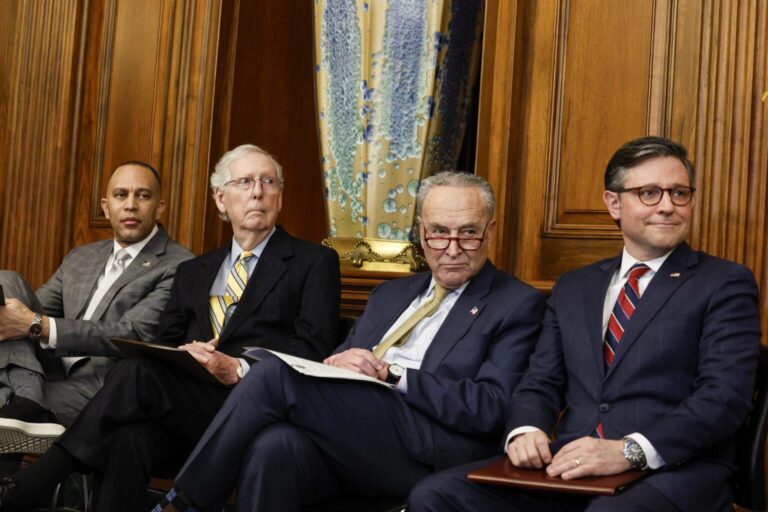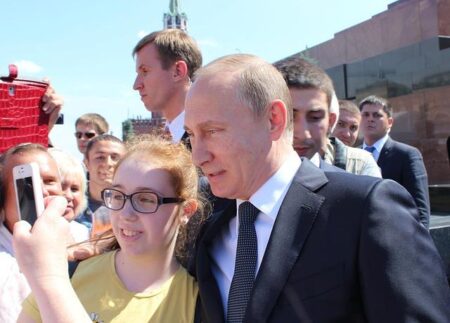Washington, D.C. – U.S. lawmakers are moving to incorporate additional sanctions against Russia into the upcoming government funding bill, signaling heightened legislative pressure amid ongoing geopolitical tensions. The proposed measures aim to target key sectors and individuals linked to Moscow’s activities, reflecting bipartisan efforts to strengthen U.S. responses amid the evolving international landscape. Details of the sanctions and their potential impact are expected to be closely scrutinized as Congress advances negotiations on the broader spending package.
US Lawmakers Push to Integrate Expanded Russia Sanctions into Upcoming Funding Bill
In a move demonstrating heightened bipartisan resolve, U.S. legislators are actively working to embed broader sanctions targeting Russia within the next federal funding package. This strategic approach aims to leverage essential budgetary measures to intensify pressure on Moscow amidst ongoing geopolitical tensions, signaling a pronounced shift towards more comprehensive economic deterrents. Key provisions are expected to tighten restrictions on Russian energy exports, limit financial transactions, and extend sanctions against entities believed to support Kremlin activities.
Key components under consideration include:
- Expansion of export controls on sensitive technologies
- Enhanced monitoring and enforcement of financial sanctions
- Broader visa bans and asset freezes targeting key Russian officials and oligarchs
- Support for allied nations to ensure compliance with the new measures
| Sanction Type | Projected Impact |
|---|---|
| Energy Export Restrictions | Decrease oil & gas revenues by 15% |
| Financial Asset Freeze | Limit Kremlin funding channels |
| Technology Export Controls | Delay military advancements |
Implications of Sanctions Addition for US-Russia Economic Relations and Global Markets
Introducing new sanctions on Russia within the U.S. funding bill signals a significant shift in the economic dynamics between the two nations. These measures are expected to further restrict Russian access to global financial systems, compounding existing barriers already imposed by earlier rounds of sanctions. The move aims to pressure Moscow economically, but it also carries the risk of escalating tensions that could disrupt international trade flows and energy supplies, especially for European markets heavily reliant on Russian resources.
Key potential impacts include:
- Heightened volatility in global commodity markets, particularly oil and natural gas prices.
- Increased challenges for multinational corporations operating across US and Russian jurisdictions.
- Acceleration of Russia’s pivot towards alternative financial partners and trading blocs.
- Adverse effects on global supply chains due to retaliatory trade restrictions.
| Sector | Expected Impact | Timeframe | |||||||||||||||
|---|---|---|---|---|---|---|---|---|---|---|---|---|---|---|---|---|---|
| Energy | Price fluctuations & supply disruptions | Short to Medium term | |||||||||||||||
| Finance | Restricted cross-border transactions | Immediate | |||||||||||||||
| Trade | Increased tariffs & supply chain delays | Strategic Recommendations for Investors Amidst Heightened Geopolitical Tensions
In light of anticipated legislative moves to introduce stricter sanctions on Russia within the upcoming funding bill, investors must reassess their portfolio exposure to sectors and regions most vulnerable to these geopolitical escalations. Diversification remains a critical strategy, particularly shifting focus towards industries less entangled with Russian markets or those benefiting from global shifts in energy supplies. Increased volatility in commodity prices, especially oil and gas, demands cautious scrutiny of related assets. Tactical asset allocation, including increasing holdings in defensive stocks and exploring alternative energy investments, can help mitigate risks. Key considerations for investors include:
Key TakeawaysAs negotiations continue on the funding bill, lawmakers face mounting pressure to incorporate expanded sanctions on Russia amid ongoing geopolitical tensions. The inclusion of such measures could significantly impact U.S.-Russia relations and shape the broader global response to the conflict. Observers will be closely watching how these developments unfold in Congress and what implications they may hold for international diplomacy and economic policies moving forward. |




